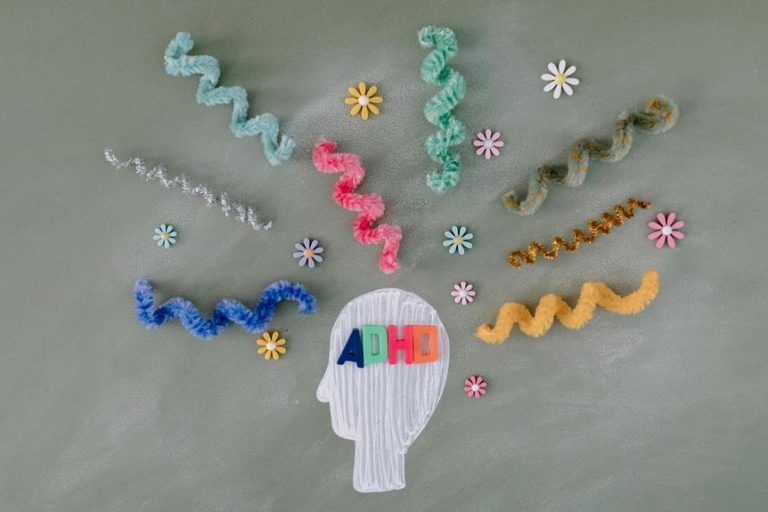Adhd Decision Fatigue
Experiencing the intricate dance of handling decisions with ADHD can sometimes feel like wading through a mental labyrinth. The complexities of managing choices and priorities can be particularly challenging for individuals with ADHD.
But what if there were strategies to help untangle this web of decision fatigue and pave a smoother path forward? Let's explore how understanding decision fatigue in ADHD can shed light on ways to manage this maze and potentially enhance decision-making abilities for a more balanced and fulfilling life.
Key Takeaways
- Decision fatigue intensifies in individuals with ADHD due to executive function challenges.
- Dopamine deficiency in ADHD worsens decision fatigue symptoms.
- Strategies like routines and delegation help manage decision fatigue effectively.
- Seeking professional help for ADHD is crucial in improving decision-making abilities.
Understanding Decision Fatigue in ADHD

In ADHD, decision fatigue manifests as a state of mental exhaustion and diminished decision-making abilities following repeated choices. Individuals with ADHD are more prone to experiencing decision fatigue at a quicker pace and to a greater extent due to the challenges they face in their executive functions. The dopamine deficiency often associated with ADHD can further intensify decision fatigue, making everyday decision-making tasks feel more draining and overwhelming.
To address decision fatigue in ADHD, implementing strategies can be beneficial. Building and sticking to routines can help reduce the number of decisions that need to be made daily, therefore conserving mental energy. Delegating decisions to others whenever possible can also lighten the cognitive load. Prioritizing important choices over less essential ones can help allocate limited decision-making capacity more effectively.
For individuals struggling with decision fatigue in the context of ADHD, seeking professional help is vital. Proper management of ADHD through therapy, medication, or other interventions can greatly improve decision-making abilities and overall well-being.
Effects of Decision Fatigue

Handling the effects of decision fatigue can be taxing for individuals dealing with ADHD. Feeling overwhelmed by constant decision-making can heighten impulsive behaviors and distractibility, making it challenging to stay focused.
The struggle with regulating behavior and managing cognitive overload can greatly impact daily functioning for those with ADHD.
Cognitive Overload Impact
Experiencing decision fatigue due to cognitive overload can disrupt the executive functions of individuals with ADHD, hindering their ability to effectively manage tasks. For ADHD individuals, cognitive overload intensifies decision fatigue symptoms, leading to mental exhaustion and reduced cognitive flexibility.
This overload impairs their judgment, making it challenging to prioritize tasks and make sound decisions. The impact extends to heightened impulsivity and emotional dysregulation, further complicating daily functioning.
Addressing cognitive overload from decision fatigue becomes imperative in managing ADHD symptoms and enhancing decision-making skills. By recognizing and managing cognitive overload, individuals with ADHD can alleviate stress, anxiety, and emotional dysregulation, ultimately improving their overall quality of life.
Impulsivity and Inattention
Understanding how decision fatigue exacerbates impulsivity and inattention is essential in comprehending the challenges faced by individuals with ADHD. Decision fatigue can intensify impulsivity, leading to quick, impulsive decisions that may not align with long-term goals.
Inattention, heightened by decision fatigue, can make it difficult to focus on important details and anticipate consequences, impacting relationships and work performance. The lack of impulse control stemming from decision fatigue poses challenges in resisting immediate gratification, affecting problem-solving abilities.
Individuals with ADHD may struggle with missed opportunities and hindered decision-making skills due to inattentiveness caused by decision fatigue. Recognizing these effects is vital in developing strategies to manage impulsivity and inattention in daily life.
Behavioral Regulation Challenges
Decision fatigue in individuals with ADHD can present significant challenges in regulating their behavior, impacting various aspects of their daily lives. When faced with numerous decisions, individuals with ADHD may find it overwhelming to make choices, leading to impulsive actions or indecision.
This mental exhaustion from decision fatigue can hinder their ability to prioritize tasks effectively, resulting in procrastination and difficulty in maintaining structured routines. The impact of decision fatigue on behavioral regulation in individuals with ADHD can exacerbate symptoms like impulsivity and inattention, further complicating daily functioning.
To address these challenges, it's essential for individuals with ADHD to implement strategies that help manage decision fatigue, enabling them to make more thoughtful choices and improve their overall well-being.
Hot Vs. Cold Decision Making

Moving between hot and cold decision-making can be a challenge for individuals with ADHD. Making impulsive choices driven by emotions can lead to regret, while overanalyzing every decision in a cold manner might hinder progress.
Understanding the balance between emotional and logical reasoning is vital in managing decision fatigue effectively.
Impulsive Vs. Thoughtful Decisions
In the domain of decision-making for individuals with ADHD, the distinction between impulsive and thoughtful choices, also known as hot and cold decision making, plays a pivotal role in understanding their behaviors and challenges.
When it comes to decision-making in ADHD individuals, the differences between hot and cold executive functions become evident:
- Hot decision making (impulsive) often involves quick, emotionally charged responses.
- Cold decision making (thoughtful) requires analytical thinking and consideration of consequences.
- Impulsive decisions may be driven by immediate emotions, while thoughtful decisions involve rational evaluation and long-term thinking.
Understanding these distinctions can help individuals with ADHD navigate decision fatigue and make more mindful choices.
Emotional Vs. Logical Choices
Understanding the impact of emotional and logical choices, commonly referred to as hot and cold decision making, sheds light on the intricate decision-making processes of individuals with ADHD. Emotional decision-making, often impulsive, can lead to immediate gratification but may result in increased decision fatigue.
On the other hand, logical choices require thoughtful analysis and can be challenging for individuals with ADHD due to executive function deficits. Striking a balance between these two types of decision-making is vital in managing decision fatigue in ADHD.
Coping Strategies for ADHD

Utilizing structured daily routines can greatly alleviate decision-making load and provide stability for individuals coping with ADHD. When living with ADHD, managing everyday tasks can be overwhelming, but implementing certain coping strategies can make a significant difference.
Here are three effective techniques to help cope with decision-making challenges and reduce cognitive load:
- Break tasks into smaller steps: By breaking down tasks into more manageable chunks, individuals with ADHD can avoid feeling overwhelmed and improve their productivity. This approach reduces the mental energy required for decision-making and helps maintain focus.
- Utilize visual aids and reminders: Visual cues and reminders can enhance organization and task management skills. These tools provide a clear structure and help individuals stay on track with their routines, reducing the stress associated with making decisions throughout the day.
- Practice mindfulness and relaxation techniques: Engaging in mindfulness exercises and relaxation techniques can help manage stress levels and improve focus. These practices enable individuals with ADHD to reset and refocus their mental energy, enhancing their overall well-being.
Importance of Routines

Handling the challenges of ADHD can be greatly eased by establishing and maintaining consistent routines. Routines play an important role in providing stability and structure for individuals with ADHD, making it easier to navigate the complexities of daily life.
By automating repetitive tasks through routines, decision-making load is reduced, thereby alleviating decision fatigue that often plagues individuals with ADHD. The predictability of routines helps in minimizing cognitive overload, allowing for better focus and cognitive resources allocation throughout the day.
Having a set routine enables individuals to stay organized, manage time effectively, and ultimately enhance their overall well-being. Consistent routines not only streamline daily activities but also contribute to improved productivity and task completion.
Embracing routines can be a powerful tool in managing ADHD symptoms, fostering a sense of control, and promoting a more structured approach to daily living.
Time Management Techniques

To effectively manage time and enhance productivity, incorporating proven time management techniques is essential for individuals with ADHD. Here are some effective strategies to help manage time and combat decision fatigue:
- Pomodoro Technique: This method involves working in focused intervals, typically 25 minutes, followed by short breaks. By breaking tasks into manageable chunks, individuals with ADHD can improve focus and decision-making efficiency.
- Daily Schedule or Time Blocking: Creating a daily schedule or using time blocking methods can assist in prioritizing tasks and setting aside dedicated time for important decisions. This structured approach helps in managing time effectively and reducing the cognitive load associated with constant decision-making.
- Eisenhower Matrix and Digital Tools: Implementing the Eisenhower Matrix to categorize tasks based on urgency and importance can aid in prioritization and decision-making. Additionally, utilizing digital tools such as calendar apps and task management software can help in organizing tasks, setting reminders, and optimizing time allocation for decision-making processes. By leveraging these techniques, individuals with ADHD can navigate daily tasks more efficiently and alleviate decision fatigue.
Decision-Making Tips

Handling the daily challenges of decision-making with ADHD can be greatly eased by implementing practical strategies and mindful approaches. To combat decision fatigue, it's important to prioritize important decisions, conserving mental energy for tasks that truly matter.
By implementing effective time management techniques, such as breaking down complex decisions into smaller steps and establishing structured routines, individuals with ADHD can streamline choices and improve decision-making efficiency. Seeking professional support can also provide tailored strategies to cope with decision fatigue and enhance overall well-being.
It's essential to automate repetitive tasks through structured routines and habits, reducing the cognitive burden of daily decisions. By incorporating these decision-making tips into daily life, individuals with ADHD can navigate through challenges more smoothly, making informed choices while conserving mental energy for essential tasks.
Frequently Asked Questions
What Does ADHD Fatigue Feel Like?
Feeling like mental exhaustion, cognitive overload, and brain fog, ADHD fatigue makes decision-making tough. Concentration struggles, impulsive choices, and executive dysfunction are daily challenges. It's draining, overwhelming, and hard to prioritize tasks effectively.
Does ADHD Cause Poor Decision-Making?
Yes, ADHD can cause poor decision-making due to impulsivity consequences, executive function deficits, cognitive overload, decision paralysis, risk assessment challenges, emotional regulation difficulties, and time management issues. Seeking support and strategies are crucial for improvement.
Do People With ADHD Get Overwhelmed With Choices?
I often experience decision overload and choice paralysis. Cognitive overload leads to option overwhelm, causing executive function challenges. Choice anxiety and decision stress are real. Seeking support and establishing routines help me manage these struggles effectively.
What Is the Surprising Link Between ADHD and Chronic Fatigue?
Surprisingly, the connection between ADHD and chronic fatigue is complex. Brain fog, energy crashes, and mental exhaustion plague many. Focus struggles, executive dysfunction, cognitive overload, and decision paralysis compound, making daily tasks challenging.
Conclusion
To sum up, managing decision fatigue in ADHD is vital for improving daily functioning.
Did you know that individuals with ADHD make an average of 35,000 decisions a day?
By implementing coping strategies, establishing routines, and practicing mindfulness, we can combat decision fatigue and enhance our decision-making abilities.
Remember, small changes can make a big difference in managing ADHD decision fatigue.







